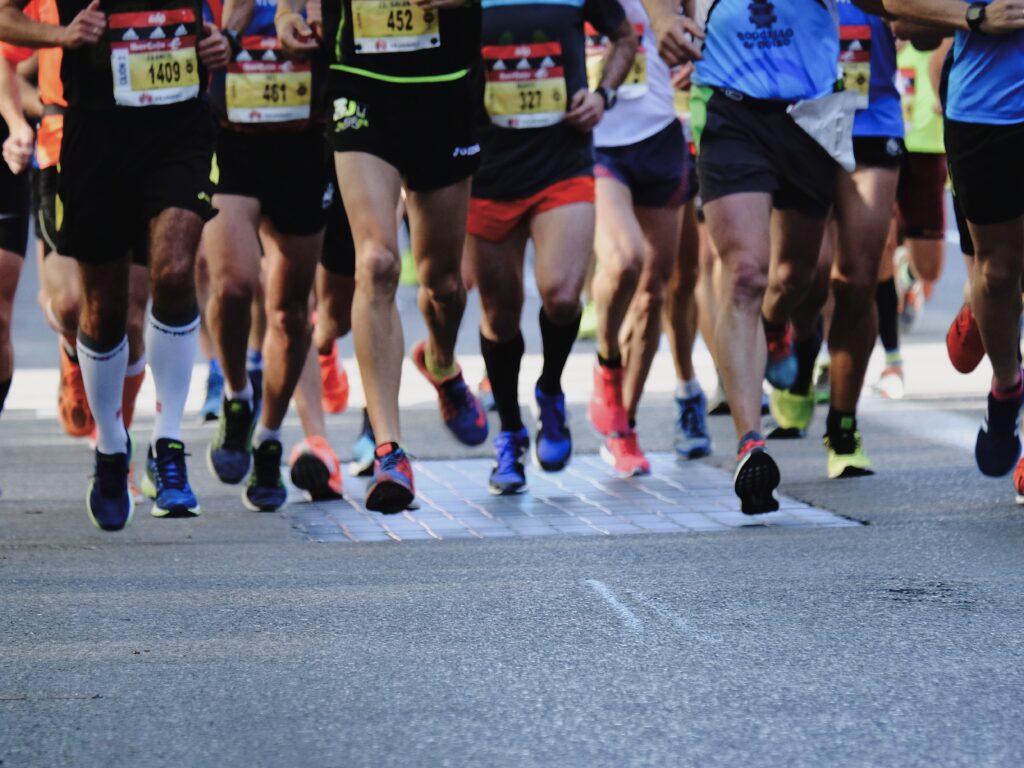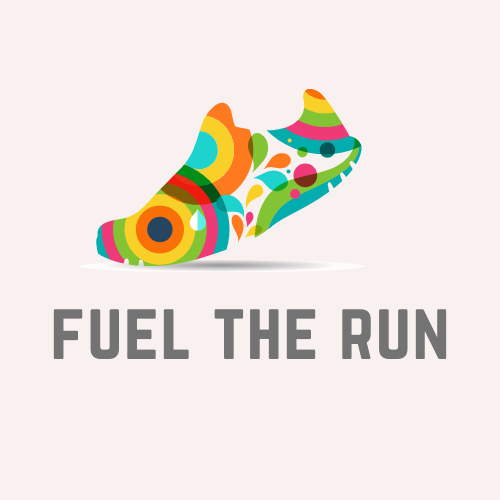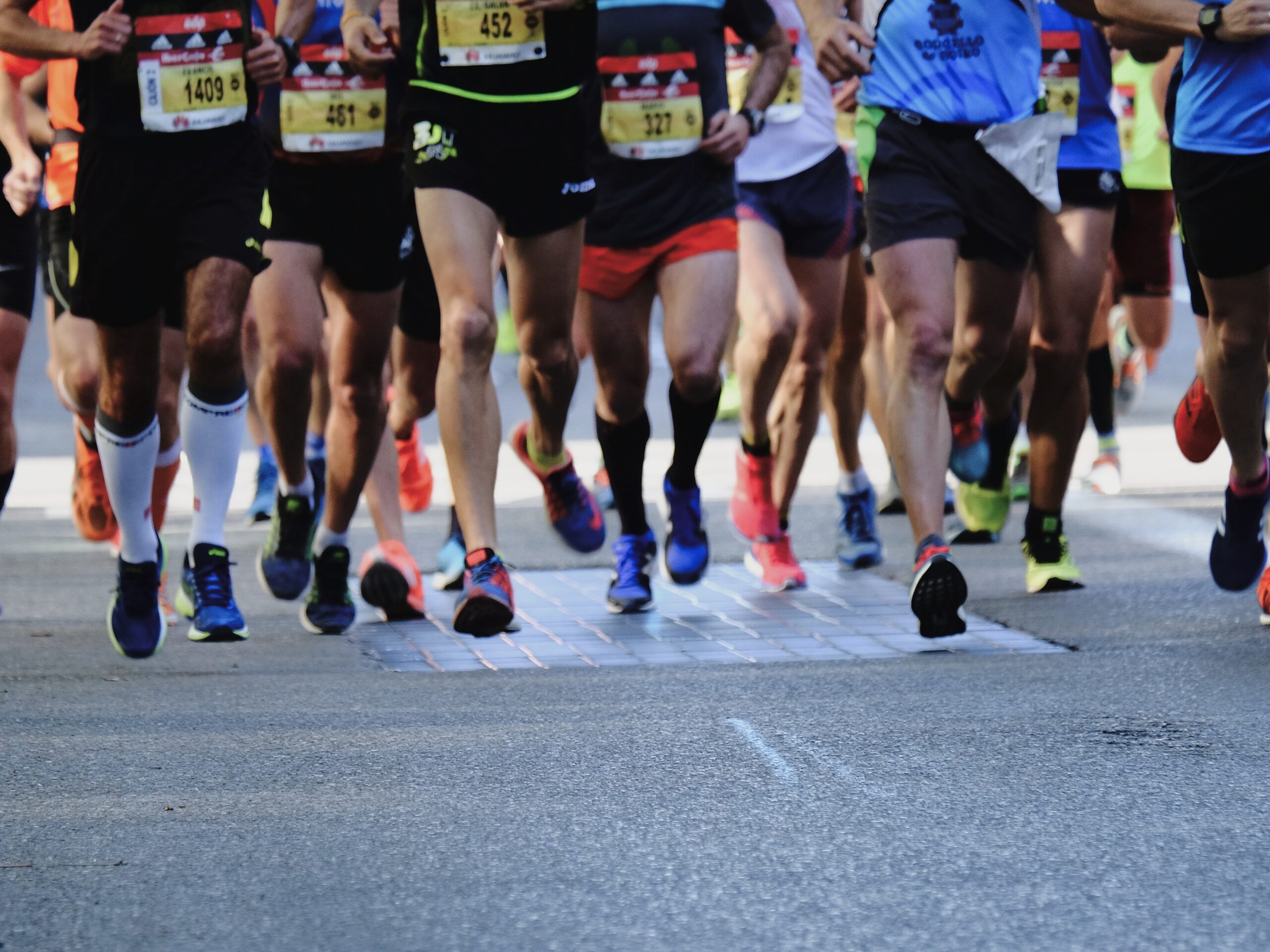
We’ve all been there. You just clicked the “sign up” button, paid your entry fee, and began feeling the jitters of pre-competition anxiety 6 months before your next big race! After this initial excitement, the reality sets in. As you’re juggling the start to your new training plan, you might be thinking, “what should I eat on race day?”
This is the #1 question I get from my runner clients, and it’s not a straightforward answer. Why? Because it depends!
What you fuel your body with before, during, and after your race is based on many factors including your age, gut health, training level, race distance, type of race, etc. There’s no one-size-fits-all answer. However, there are a few basic tips with getting started on your fueling plan…read on to learn more!
First, we need to talk about hydration.
There is no one-size fits all answer for hydration. What you need to know is your individualized fluid needs based on your sweat rate.
What’s the ONE thing you can do to perform 33% better than your competitors? The answer to that? Establish a hydration protocol for yourself.
If there’s anything you need to be assertive with beforehand, it’s knowing your individual sweat rate and knowing how much fluid to consume before, during, and after your race. For races 5K and shorter, it’s not necessarily a big deal. But for the big ones, 10K and up, hydration becomes a major contributor to the success of your race.
Figuring out your sweat rate isn’t as scary as it sounds. You can download my quick cheat sheet on how to do this.
What & when should you eat before your race?
This question is my favorite. If you’re a runner, triathlete, or biker, you’ve probably been to a few of your fair share of “spaghetti feeds” the day before your race. I’ll never forget how much I loved these endless carb frenzies every week when I was in high school. We filled up on tons of carbs the night before the race, in hopes it would provide enough energy to help us PR the next day.
Here’s the scoop on pre-race meals. Eating one meal the night before that’s super nutrient-rich, but not fueling yourself during your training process, will ultimately not help you during the race. When you consistently eat a proper amount of food during training, you start to build up glycogen stores, which will be 100% necessary for race day(s). So, don’t just think about that ONE meal before your race. Think about all the meals leading up to it.
Rule of thumb: For immediate energy use, fuel up on the following:
- 2-4 servings of carbs, 1-2 sources of lean protein, & fat about 3-4 hours before your race starts.
- Examples of this:
- 1 c. oatmeal + 1 c. berries + 2 tsp honey in oats + 1 tbsp nut butter in oats + 2 eggs (3 carbs, 1 protein, & 1 fat)
- 1 whole grain bagel + 2 tbsp nut butter + 1 banana + 1 c. milk (2 carbs, 1 protein, & 1 fat)
- 2 scrambled eggs + 2 pieces whole grain toast + ¼ avocado + ½ c. orange juice + 1 apple (4 carbs, 1 protein, & 1 fat)
- Examples of this:
- If your race starts at 6 AM and you don’t have want to wake up to eat at 2 AM to do this, then focus on eating:
- 2-4 servings of carb, 1-2 sources of protein, & moderate fat the night before your race AND eat a breakfast with a good source of carbs & protein (1).
What should I eat during the race?
To start, you don’t need to focus on consuming every macronutrient during your race. Fat consumption is not necessary during your race because it won’t provide immediate energy and can often cause GI distress during a long race because it’s harder to digest. Hello? We want to be running towards the finish line, not the portapotty, right?!
Protein intake is needed for ultra-endurance runners, or for those who plan to run the marathon and up.
Who’s the winner? Easy to digest carbohydrates are your best friend during an endurance race because they provide you with immediate energy.
Here’s a basic guide to follow:
- Carbohydrates: Consume 30-60 grams of carb/hour spaced every 15-20 minutes. Carb intake should begin shortly after the start of the race, not in the middle of it when you start to feel fatigued.
- What does 30 grams of carbohydrate look like?
- ½ banana + 3 Gu Chews
- 16 oz of Nuun Endurance Hydration + 3 dates
- Honey Stinger’s Organic Stinger Waffle + 6 oz GoodSport sports drink
- Remember…this is to be consumed throughout the first hour, so make sure to sip and chew wisely.
- PRACTICE MAKES PERFECT! Practice this beforehand to test out how much your body can tolerate. You don’t want to use race day as a test to see whether you’ll be spending the majority of the time in the portapotty as opposed to actually focusing on your race!
- Gels, chews, dates, and bananas are a few favorite race carbs.
- What does 30 grams of carbohydrate look like?
- Protein: Very small amounts may be beneficial for ultra endurance athletes only. Protein provides essential amino acids that help rebuild damaged tissue, and has been shown in longer endurance races to prevent rapid breakdown(1,2).
What should you eat after your race?
If you’re like me, you finish a race and don’t feel hungry enough to eat a meal for hours! But it’s important to know that while your body may not feel hungry, it needs fuel as soon as possible to start regenerating your broken down muscles and tissue. This helps your body to recover more completely and more quickly with less risk of injury (1).
It’s best to start refueling within 1 hour of your race if you can. Your post-race snack should include both carbs AND protein. A perfect post-workout snack is chocolate milk because it contains carbohydrates from the lactose and chocolate, and protein from the milk.
To optimize recovery even more, plan to have a meal within 2 hours of your race wrapping up. This is where you can start incorporating all of the macronutrients: carbs, protein, and fats.
Don’t forget about hydration too! Don’t guzzle the water, but be sure to sip more than you do on a normal day to restore your fluid balance. You’ll know you’re hydrated again once your urine starts to look pale yellow and not bright yellow.
Key Takeaways
Here’s the thing…as great as it is to have a list of what you should do, all of our bodies react differently to what to eat on race day. Why? Because we’re all biologically very different. You might be able to refuel every 15 minutes with a whole banana, whereas your competitor can only tolerate ¼ of a banana and has to rely on gatorade to replenish with plenty of carbs.
That being said, these numbers are an estimate. If you really want to gain a competitive edge, or if you’ve tried all these tips and they’re not 100% working for you, it’s time to hire a Sports Dietitian (like myself!) to help you create your individualized fueling plan. If this is the case for you, feel free to email callie@fueltherun.com to inquire about personalized nutrition coaching for you!

